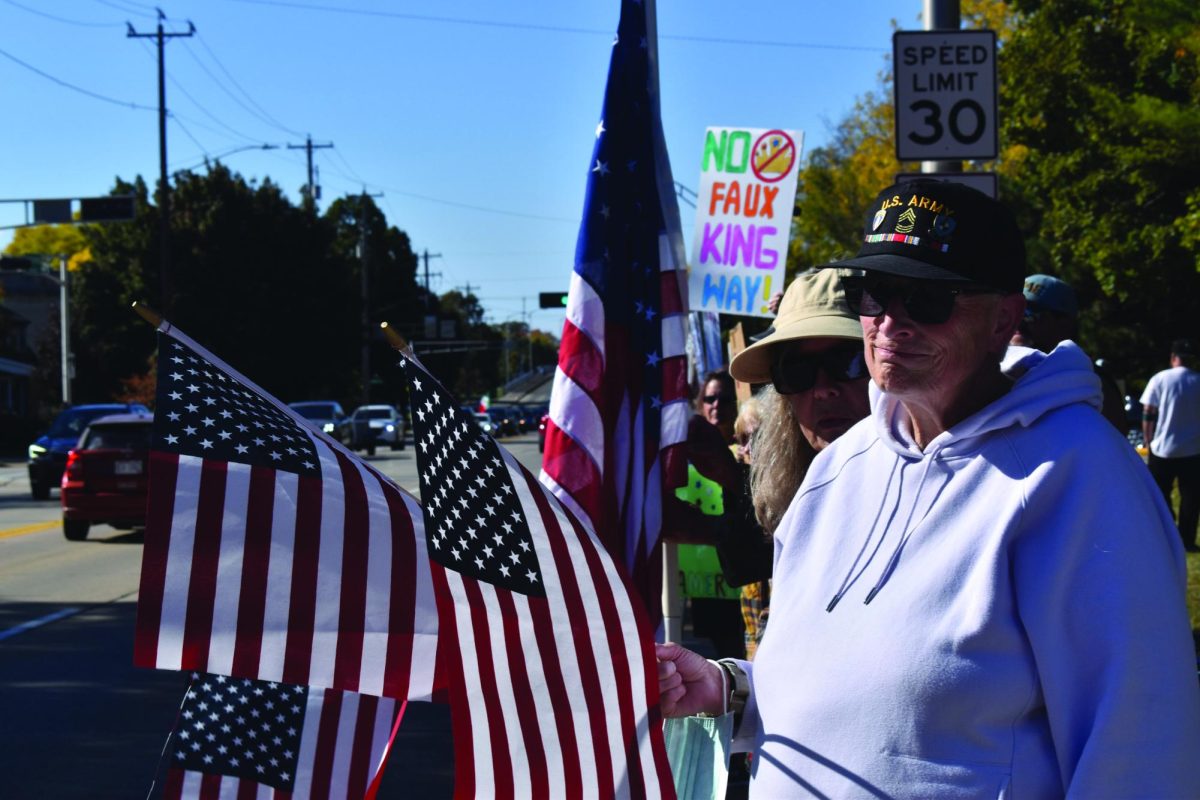UW Oshkosh held its third annual #RapeIsNotAJoke event to help end the misuse of the word rape on campus and raise awareness for sexual assault month on April 29 in the Reeve Memorial Union Theatre. Lauren King, a co-student director for the event, said #RapeIsNotAJoke and Denim Day were two events intergrated into one. Denim day comes from a [Italian] Supreme Court decision where a judge dismissed the rape conviction because he said that the victims pants were so tight, she must have helped removed her jeans, which then made it consensual sex, King said. Kelsey Mueller, a co-student director for the event, said the #RapeIsNotAJoke event stemmed from a Campus Awareness for Relationship Education intern who didnt like hearing the word rape being carelessly thrown around in everyday language on campus, and wanted to do something to change that. According to Mueller, statistics from the U.S. Department of Justice show 35 per 1000 college females are sexually assaulted each year. Using those statistics we can assume that 250 females on the UWO campus are sexually assaulted each year based on our enrollment we have on the campus, Muller said. Mueller said sexual assault does happen more on college campuses than in the general public, so it is important to shed some light and bring awareness to this issue. CARE intern Megan Hess said one in five females and one in seven males are sexually assaulted annually in the nation. Sexual assault happens on a national level, but it also happens right here on campus, Hess said. It is important for people to realize that it may not happen to them, but it is out there and it is a possibility. It is important to use your words carefully, because you dont know who has been affected by this issue, it could be someone sitting next to you or even a friend, Muller said. UWO junior McKenzie Valenta said an important aspect of the event is to bring light to sexual assault on campus and the community. It is important to get the word out onto campus that using the word rape out of context is inappropriate, and for students to be more aware about how they say things, Valenta said. Valenta said educating students about misusing the word rape is important so they realize how their words can affect someone. By educating and removing the word from our vocabulary, we create a more inclusive environment that everyone can feel safe and comfortable in, Valenta said. According to Mueller, most people do not consciously mean to use the word rape out of context. I think it is more a subconscious act people pick up on when you hear other people using it numerous times, and then becomes normative as something bad and negative, Mueller said. King said one of the main goals of the event is to erase phrases such as that exam just raped me from the vocabulary used on campus. It is important to use different words or phrases that are not so offensive to certain people, King said. You never know who was a victim of rape, and phrases like that can bring up bad memories. CARE intern Marissa McKenney said the event is to show that rape is a serious issue and shouldnt be used in a joking manner. You never know who you are talking to or the experiences they have had, Mckenney said. Were trying to promote that you dont use that kind of language, and to take each individuals feelings and experiences into account. McKenney said students need to think of alternative phrases to use in everyday vocabulary. Everyone needs to stop saying phrases such as the wind just raped my hair or I just raped that exam, McKenney said. Instead, people should use phrases like that test was really hard or I just rocked that test. According to Mueller, communication is key when intervening on someone who is using the word rape out of context. Try to tell them in an approachable and non-judgmental way, Mueller said. If you explain your reason instead of coming off harsh, people are more likely to understand where you are coming from, and will consider changing their habits when they know it affects someone personally.
Categories:
Students agree #RapeIsNotAJoke
April 29, 2015
0
More to Discover








